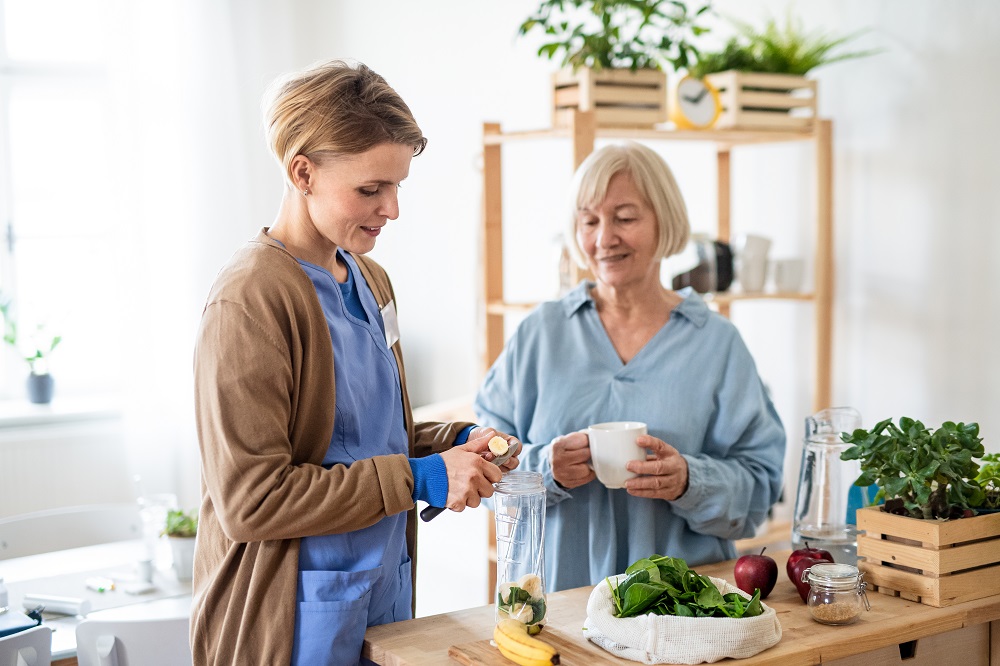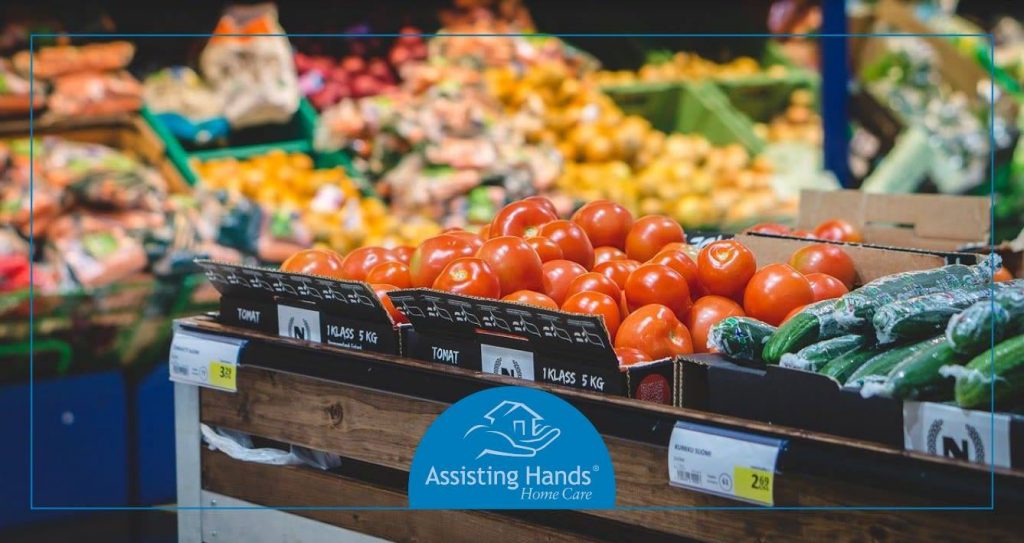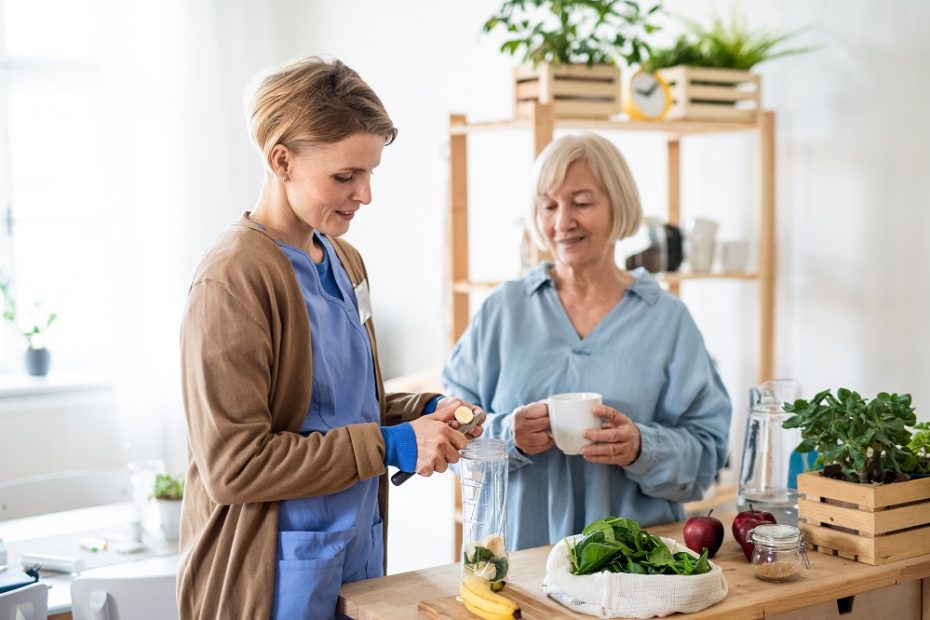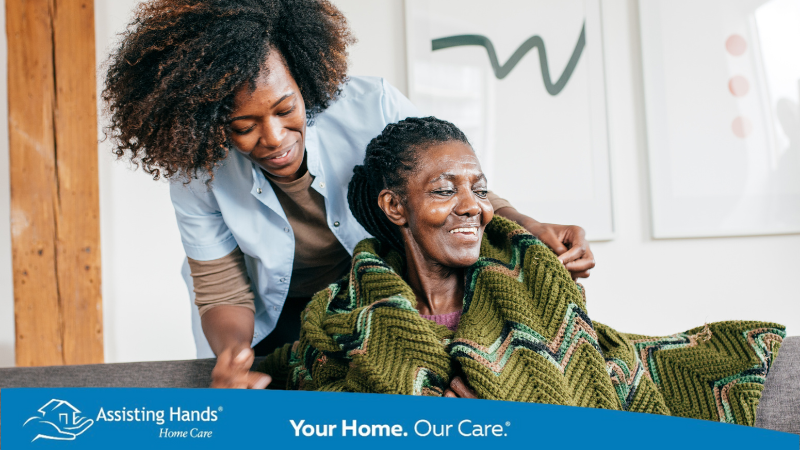
Vitamins are essential for optimal bodily functioning. Aging adults need vitamins, too, although in larger quantities. Growing older tends to spur changes to the vitamins and minerals that seniors need. Seniors should try to consume the following beneficial vitamins on a daily basis.
Vitamins and minerals are two components that promote physical health. The former consists of micronutrients derived from plants or animals. Seniors need vitamins, like vitamins A, B, C and D, in small amounts on a daily basis. Older people benefit from all types of vitamins.
Minerals, on the other hand, are extracted from the soil and water—not plants and animals. In addition to vitamins, minerals, like calcium, magnesium and potassium, help the body function at its best. An aging body does not need all types of minerals, however.
The aging process may trigger an increased need for vitamins. Older adults’ bodies do not absorb and process vitamins as rapidly as when they were younger. Medications, like proton pump inhibitors used to ease heartburn, impact the body’s ability to absorb vitamins, such as B12.
Older people experience a lower metabolism, which makes them less hungry; as a result, seniors may eat less. Due to economic challenges or mobility, some aging adults do not have access to nutrient-dense foods. Both of these scenarios can cause seniors to consume fewer essential vitamins.
Seniors are advised to get all 13 essential vitamins from food—rather than supplements. Consuming vitamins through nutritious foods not only delivers the necessary vitamins, but also provides additional benefits, like fiber. Supplements may be taken when seniors lack access to nutrient-rich foods.
- Vitamin D
People aged 51 to 70 require 15 mcg of vitamin D (and no more than 100 mcg) per day. Vitamin D promotes bone health. This vitamin helps the aging body absorb calcium and benefits the body’s immune system. Fatty fish, egg yolks, and fortified milk contain vitamin D.
Insufficient vitamin D levels can lead to a higher risk of bone fractures in seniors. Older people can experience rapid bone loss and osteoporosis without adequate vitamin D. Fortunately, spending time in the sun can increase a senior’s vitamin D levels, as will consuming foods rich with this vitamin.
- Calcium
Calcium is a mineral, but is essential for optimum bodily health. Seniors need 1,000 mg per day of calcium to promote strong bones and teeth. This mineral is important for older people who are at risk for bone loss. Calcium can be found in soybeans, sardines, and dark-green leafy vegetables.
- Vitamin C
Seniors should aim to ingest 75 mg of vitamin C each day. Vitamin C protects a senior’s naturally weakened immune system by increasing white blood cell production and warding off infections. Good sources of vitamin C are citrus fruits, potatoes, and tomatoes.
- Vitamin E
Each day, seniors should try to consume 15 mg of vitamin E. Some current research suggests vitamin E in high doses could delay the progression of Alzheimer’s disease, while other research does not show this benefit. Peanuts, almonds, broccoli, and spinach are sources of vitamin E.
- Vitamin K
Seniors who get 120 mg of vitamin K per day prevent calcium buildup in their arteries. Low levels of vitamin K are linked with higher levels of osteoarthritis and subsequent falls. Seniors reduce the likelihood of an early death by eating foods rich in vitamin K: blueberries, figs, and spinach.
- Vitamin B12
The recommended amount of vitamin B12 is 2.4 mcg per day. Vitamin B12 promotes nerve function and the production of red blood cells. Insufficient vitamin B12 increases a senior’s risk for heart disease and weakens cognitive faculties. Nuts, seeds, poultry, fish, and fortified cereals contain vitamin B12.
- Vitamin B1 (Thiamin)
Men should get 1.2 mg per day of thiamin; and, women should aim for 1.1 mg each day. Absorption of thamin is poor among the elderly. Seniors who receive sufficient doses of thiamin ward off cataracts and depression. Large amounts of thiamin can be found in pork and fish.
- Vitamin B2 (Riboflavin)
The recommended daily dose of riboflavin for men is 1.3 mg, and for women, 1.1 mg. Riboflavin works as an effective antioxidant and fights the free radicals that contribute to heart disease. The best sources of riboflavin are milk, yogurt, mushrooms, eggs, spinach, and almonds.
- Vitamin B3 (Niacin)
Men should try to consume 16 mg of niacin each day, and women 14 mg each day. Niacin eases arthritis and boosts brain function. As a supplement, niacin helps lower cholesterol. This essential vitamin may be found in nuts, legumes, and grains. Beef, fish, and poultry are additional sources.
Older people will experience a healthy lifestyle by consuming adequate amounts of vitamins, especially through the foods they eat. While there is no current evidence that getting enough vitamins reduces the risk of dementia, vitamins offer other invaluable health benefits that contribute to well-being.

If the elderly loved one in your life is unable to cook, rely on Assisting Hands Home Care for help. We are a leader in non-medical home health care and ensure that care recipients consume nutritious meals every day, experience physical and emotional well-being and, overall, enjoy high quality lives.
Professional caregivers from our home care agency shop for fresh groceries, provide transportation to doctors’ offices, perform light housekeeping, and assist seniors with personal hygiene tasks. We support seniors in all the activities of daily living so that they may age in place comfortably.
Assisting Hands Home Care is also a qualified memory care service provider. We offer compassionate dementia and Alzheimer’s care to senior patients. Our caregivers gently support seniors who wander, suffer from incontinence, or become agitated. We also give timely medication reminders.
As the most trusted leader in home care, Assisting Hands Home Care meets all the nonmedical needs of seniors, as well as Alzheimer’s patients. If your elderly loved one lives in Addison, Lombard, Elmhurst, Medinah, Glendale Heights, Itasca, Bensenville, Villa Park, IL Illinois, or the surrounding areas, call us at (630) 526-6522 to schedule an in-home consultation and start quality in-home care.
















